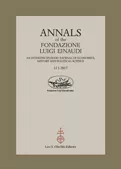Regional cooperation among neighboring states in the current world is not only about free trade. It is a consolidated multidimensional reality in every continent since decade as shown by a large comparative literature in various disciplines exploring similarities and diversities, endogenous drivers and exogenous factors. One of the main differences is between the democratic type defined “new regionalism” by the international epistemic community since the ‘90s and the more recent authoritarian and hierarchical model of top-down regional cooperation. The article is addressing a crucial question: how does this complex reality interplay with multilateral global governance, notably in hard times of crisis and coming back of power politics? The article explores various forms of regional and interregional cooperation and concludes by drafting three scenarios: a) a transformation of regional organizations into spheres of influences of great powers; b) a multilayered global governance as the driver of a new more legitimate and efficient multilateralism; c) a mixed and weaker global governance, combining in a unstable and uncertain way, fragmentation, power politics, democratic multilateralism, functional cooperation.



